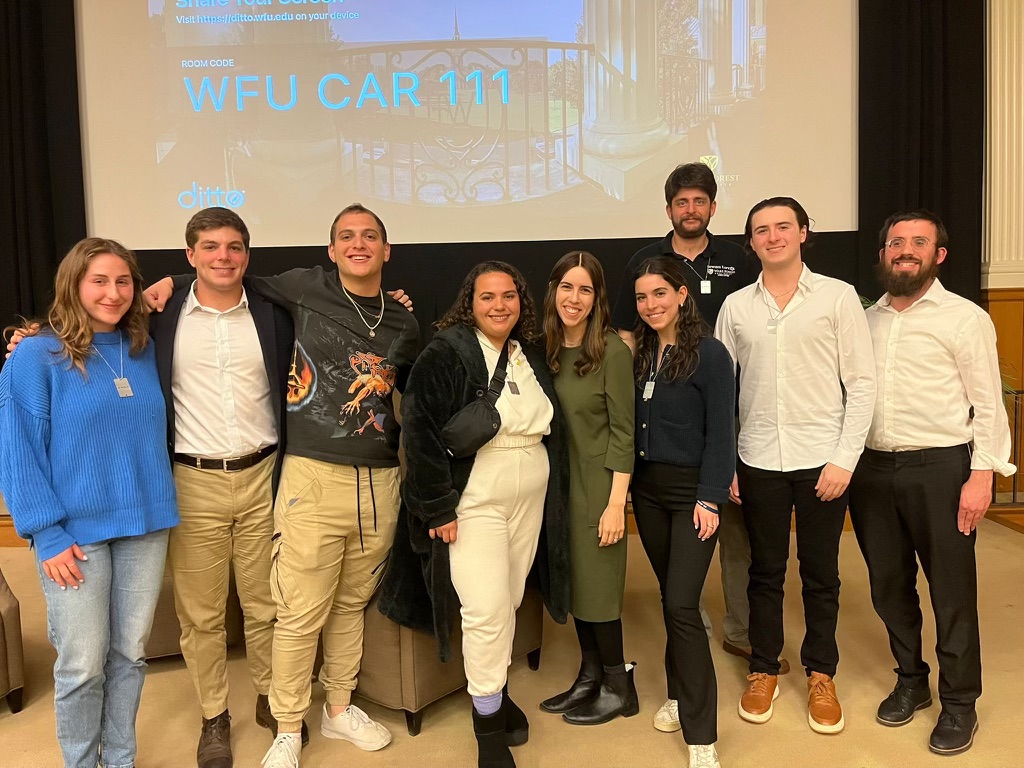Wake Forest offers students a unique sense of safety on campus, with ever-present University Police vehicles, blue lights and people around.
But what happens when you live outside of those iron gates?
Twenty-five percent of the student population lives off-campus, where crime involving students is proportionally higher than it is on campus, according to Bryan Blakley, Executive Officer of the Patrol Division.
“Violent crimes — like robberies and assaults — are up in the city and Wake Forest is in the city,” Blakley said. “Students have to be cognizant of that.”
In recent months, serious crime has seemed to dip, but upperclassmen can easily recall the period, from June to October in 2016, when there was a shooting, an armed robbery, two physical assaults and an abduction, all against students and four of which occurred off-campus.
Additionally, the tragic shooting of a Winston-Salem State student on campus by an outside assailant in January of this year raised the sense of danger lurking outside of Wake Forest.
Despite the heightened conversation surrounding crime, students, even those living off campus, don’t necessarily seem to feel the threat personally.
“My parents didn’t want me to live off campus, because they got all the crime alerts last year,” said senior Alex Monetti. “I know it happens … but for me I don’t really think about it.”
The trend appears to be that students are aware that Winston-Salem is not particularly safe, but still report feeling safe at Wake Forest — as if being a student excludes them from the “outside” narrative.
While there are no official public surveys, unscientific anecdotal data has been collected such that the perception of safety at Wake Forest received an average rating of an A-minus, according to studentsreview.com, which contrasts with the report from niche.com, which assigned the safety rating of a B-minus (based on crime statistics compared to other universities).
“When we let our guard down, that’s when something can happen,” said Major Derri Stormer of University Police.
Seniors Lindsay Hoyle and Grace Jannotta, who both live on Ewing Street, didn’t think they would come face-to-face with such dangers until they were stalked driving in the area surrounding campus this semester.
On Oct. 1, Jannotta left campus in her car around 10 p.m. and headed to her boyfriend’s house. In the dark, she was unable to see the crisscrossing streets in the Lakewood neighborhood and made a wrong turn and pulled into a driveway to turn around.
“I was kind of checked out and didn’t have my glasses on,” Jannotta said. “I’m just glad I made that wrong turn.”
If she had not, she might not have realized that a car had been so close behind her she couldn’t even see its headlights. And she might not have seen the driver pull into the neighboring driveway, also turn around, and then follow her every move, even when she began driving in circles.
Hoyle had a similar experience in early September when she was followed outside her neighborhood to a friend’s house. The presumed stalker left when they saw her male friend waiting for her, but returned later the same night to her house, driving past and even parking outside around 2 a.m.
Hoyle called the police right away, as did Jannotta—who lost her stalker when she drove to the University Police Department and got an escort home. Neither students nor the police have a clue who the stalkers were or why they followed Jannotta and Hoyle.
After Hoyle’s incident, University Police has increased the officer presence in the Ewing neighborhood. This is the third year that University Police has directly hired Winston-Salem police officers to patrol and saturate certain majority-student neighborhoods, which ensures that the officers don’t get called away to other areas.
It is Winston-Salem Police that respond to calls and have jurisdiction over all non-Wake-Forest-owned off-campus properties, although University Police can be called to assist and receives reports on incidents.
Because of this, the University Police wants students to be more aware of the safety resources they provide, such as the on-time shuttle and the LiveSafe app, as well as their surroundings at all times.
“Turn and look to see how many people are watching you [out in public] … you’d be amazed,” Stormer said.













